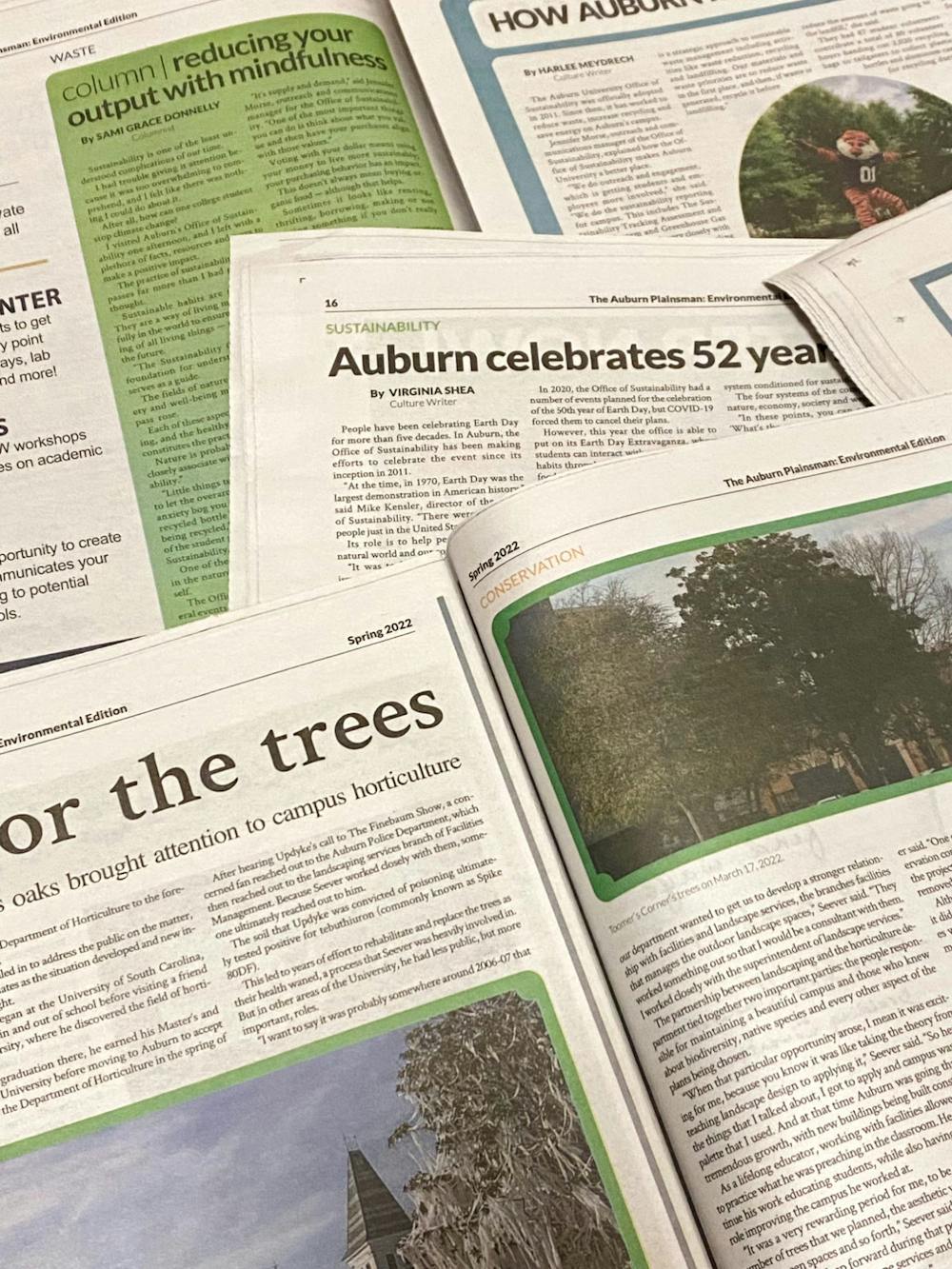Readers, audience members, users and society: this is who we are.
The media — news, electronic, social or otherwise — has the responsibility of sieving through copious samples of information to give us the knowledge we need.
The problem we face today is that the sieve is in the hands of more people than ever before. With the turn of the century, the media experienced a gradual change in domain.
The majority of media today is digital, and great amounts of news intake happen on social media.
By my analysis, journalistic responsibility has lost integrity by becoming so widespread. This responsibility is now in the hands of influencers, public figures, CEOs, celebrities and individuals with large followings.
To a professional journalist, truth is livelihood.
“To do well and make a profit is good, but an informed democracy is the ultimate goal. It’s in our very Constitution," said Gheni Platenurg, an Auburn journalism professor about the purpose of journalism.
Freedom of the press is the first item the Founding Fathers amended in the Constitution. With great effort and foresight, they enabled certain members of society to fulfill this critical responsibility.
Original journalists were credible individuals who wanted the best for their country. Journalism — at its core — exists to enable a society to function, and is able to do so by individuals who value the truth.
It keeps people in check, utilizes creativity and talent, fosters connection, provides jobs and informs the public with the truth.
Yes, journalistic truth can become tainted by sensationalization, metrics, bias and corporate communication; but this real-life game of telephone can only be won by credible reporting, balanced intake and self responsibility.
Professional journalists are trained to complete this chasmic task in the way that most benefits society. It is their vocation, not just a midafternoon scroll on a screen or a way to get popular. They should be the ones sieving through the world’s information because they have training and standards to guide them.
In a 2021 research project conducted by Oxford University, the United States ranked lowest out of 46 countries for having “media trust” with its citizens, at only 29%.
The ability to create and consume news has increased, but media literacy among the population has not increased proportionally. This means that people do not know how — or care enough — to critically analyze their source of news.
Journalism was created for a pure and necessary purpose; but in the eyes of people today, it is erratic, overwhelming and untrustworthy.
Social media is where people go. It’s full of familiar faces. Users can curate their perspectives by choosing who they follow — and who they don’t. Credible and authentic journalism aims to provide a variety of perspectives, but this does not usually happen on social media, which is the way most people get their news.
So of course, it makes sense that most people view the media as being untrustworthy.
But the majority of people do not care enough to seek out trustworthy news from legitimate media companies who have credible sources. They turn to the familiar and treat news like entertainment. A search for the truth should take more than a two minute read and a 24-hour repost on a story.
Some media companies have tried to adapt by making social media accounts for themselves, but these new methods of presenting news don’t fix the distorted way most people consume it. This is where self-responsibility comes into play.
Credible media companies should have pure motives, multiple sources and balanced presentation. Journalists should exercise self-responsibility in accumulating a variety of perspectives and by being impartial in their writing. Readers, in turn, exercise self-responsibility by finding out which companies are trustworthy and by reading about the truth from multiple perspectives.
This journalistic process must be completed in fullness for a society to apprehend the truth.
Self responsibility is only worthwhile when it goes both ways. It takes time to evaluate your source, and you must be willing to accept new information. This is the only way that news is worth anything.
So if you are not willing to take the time to evaluate your news sources and comprehend the full truth, you should find some other form of entertainment. This culture has plenty.
The opinions expressed in columns and letters represent the views and opinions of their individual authors.
These opinions do not necessarily reflect the Auburn University student body, faculty, administration or Board of Trustees.
Do you like this story? The Plainsman doesn't accept money from tuition or student fees, and we don't charge a subscription fee. But you can donate to support The Plainsman.

Sami Grace Donnelly, senior in English literature, began writing for the Plainsman in the fall of 2021. She has served as a columnist, writer abroad, Opinion Editor, managing editor and is now Editor-in-Chief of the Plainsman.





